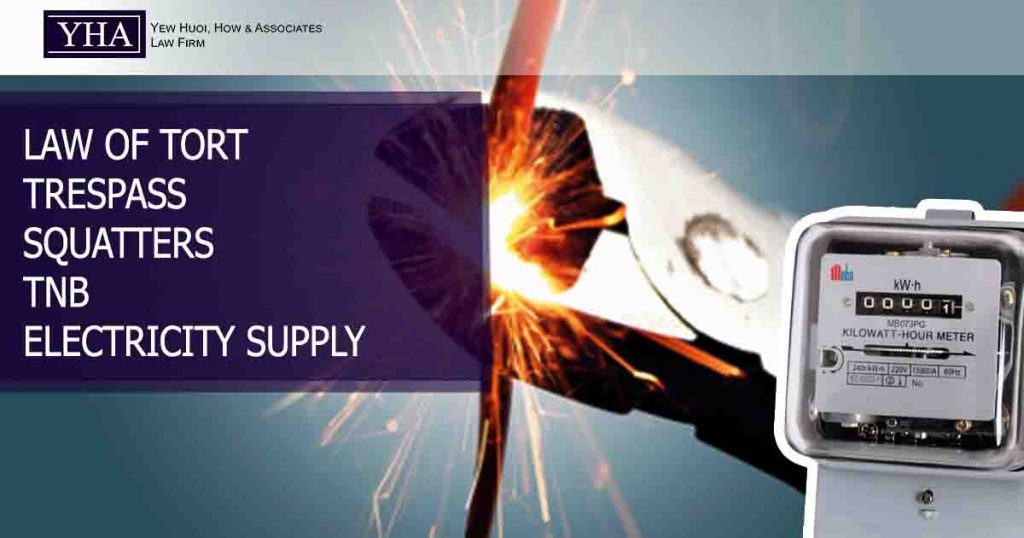I am an owner of a property. I am a registered proprietor. There are squatters who unlawfully occupy my property. Can I ask Tenaga Nasional Berhad (“TNB”) to stop supplying electricity to the squatters?
Yes.
- TNB has to comply with the owner’s demand to cease supply of electricity.
- Otherwise, TNB will expose itself to a claim of trespass.
- TNB has a protocol to supply electricity to applicant who can produce supporting documentation showing he/she is entitled to occupation of the property.
What is trespass?
- In law, trespass is defined as “unlawful direct and immediate interference with the possession of land which is in the possession of another person, or which another person is entitled to possession of”.
- It simply means interference of someone’s land. Interference could be setting a foot, taking possession, destroying the items or building something on the land.
What is the law that protects my right to my property?
- Right to property is a right enshrined in our Federal Constitution via Article 13. Article 13 reads “(1) No person shall be deprived of property save in accordance with law”.
STEP 1 : Serve the order declaring the squatters’ status on TNB.
STEP 2 : Demand for TNB to stop supplying electricity to the squatters.
Case in point: Tenaga Nasional Bhd v Bukit Lenang Development Sdn Bhd [2019] 1MLJ 1. Federal Court (Putrajaya) – Civil Appeal no 02(f)-108/10 of 2017(J)

